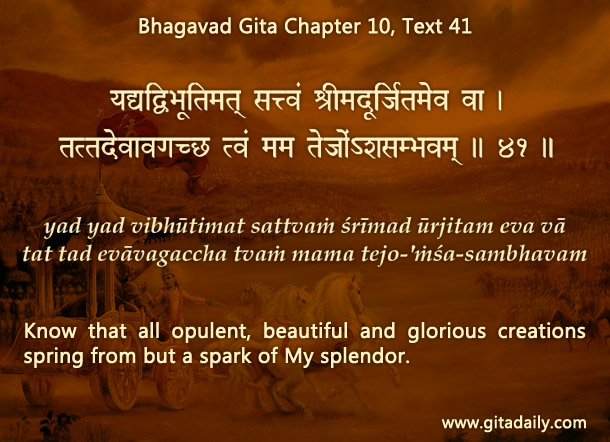The Bhagavad-gita analyzes people into two distinct categories: godly and ungodly (16.05). We might wonder, “Are such categories useful when most people fall somewhere in between?”
Yes, they are useful, provided we understand the purpose and level of such categorization. Suppose children are being taught to identify colors. First, they need to learn to identify starkly different colors such as black and white. After they become comfortable with such identification, they can be taught about shades of grey, which manifest varying degrees of black and white. If their color education stays limited to black and white, they won’t be able to precisely identify many of the colors that characterize reality. But if their color education begins with shades of grey, they might find the complexity overwhelming.
We need a similar multi-level approach when discerning any particular person’s moral level. First, we learn about the two opposites on the moral map: the godly and the ungodly. Such stark classification gives us a basic framework to navigate reality — we know unambiguously which qualities to aspire for and which qualities to avoid. Having got that sense of widely divergent trajectories, we can then look at specific individuals, including ourselves, to better understand where they stand on the moral spectrum. Gita wisdom accommodates such nuance when it describes how the three modes of material nature combine in unpredictable ways in every human psyche (14.10). Thus, we can appreciate, for example, that just one bad action doesn’t make a person bad. Resisting the temptation to quickly place anyone in convenient boxes such as heroes and villains, we can strive to understand them in their moral complexity and deal with them appropriately.
One-sentence summary:
Black-and-white analysis helps when used to get a handle on a complex reality, but it harms when used to reduce all of reality to preconceived categories.
Think it over:
- When does black-and-white analysis help?
- When does black-and-white analysis harm?
- When you interact with people, do you try to reduce them to preconceived categories? How can you avoid such reductionism?
***
16.05: The transcendental qualities are conducive to liberation, whereas the demoniac qualities make for bondage. Do not worry, O son of Pandu, for you are born with the divine qualities.


Leave A Comment